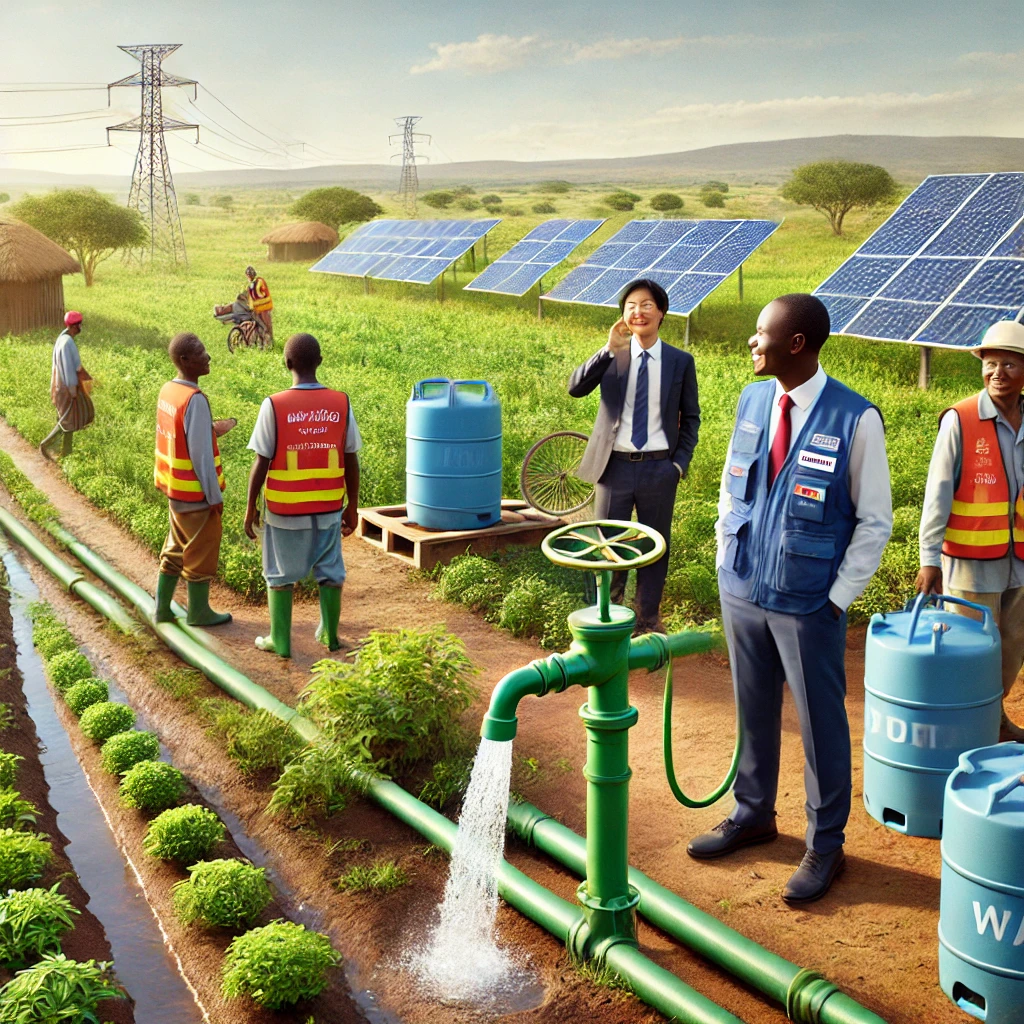FAO Validates Seed System Investments to Boost Resilience in South Sudan
The meeting aimed to validate findings from the draft report titled “Assessing the Effectiveness of Resilience Interventions Through Investments in Seed Systems.”

- Country:
- South Sudan
In a pivotal step towards improving food security and agricultural resilience in South Sudan, the Food and Agriculture Organization (FAO) convened a peer review meeting on 9 May 2025 to assess the effectiveness of its seed system investments across five states in the country. The session, held under the banner of the “Lessons Learning and Knowledge Sharing Initiative on Resilience in Africa”, marked an important milestone in evidence-based programming for vulnerable communities affected by ongoing crises and climate-related shocks.
The meeting aimed to validate findings from the draft report titled “Assessing the Effectiveness of Resilience Interventions Through Investments in Seed Systems.” The assessment evaluates FAO’s strategies such as community-based seed production, seed fairs, and direct seed distribution, which form a core component of its agricultural interventions in 13 counties across five states of South Sudan.
Broad Stakeholder Engagement for Validation
Attended by representatives from FAO, United Nations agencies, non-governmental organizations, research bodies, and civil society organizations, the event fostered an inclusive and participatory environment for feedback. Experts provided technical input on both the qualitative and quantitative findings, ensuring the study’s credibility, relevance, and operational utility.
The assessment applied the Resilience Index Measurement and Analysis II (RIMA-II) methodology to quantify outcomes, supplemented by qualitative tools that explored contextual dynamics behind the data. These twin lenses helped elucidate the ‘what’ and the ‘why’ of observed resilience changes in farming communities benefiting from seed interventions.
Seed Systems: A Cornerstone of Resilience
“Strengthening local seed systems – including traditional varieties – alongside promoting commercial seed production is essential to support agriculture in South Sudan,” said Felix Dzvurumi, FAO South Sudan’s Head of Programme. He emphasized the need for inclusive agricultural development that respects local knowledge while enabling scalability through commercial supply chains.
Peer reviewers supported this stance, noting the dual benefits of preserving traditional agro-biodiversity and boosting farmer incomes. The discussions also highlighted the significance of timely access to quality seeds as a key enabler of early planting, crop diversification, and climate resilience.
Multi-Forum Validation and Knowledge Dissemination
To ensure wider consensus and integration of findings into national frameworks, the report will undergo further review at two strategic platforms:
-
South Sudan Food Security and Livelihoods Cluster (FSLC) – focusing on operational alignment and collaborative implementation.
-
FAO South Sudan Donor Update Meeting – providing development partners with evidence to inform continued support.
These forums will strengthen alignment with sectoral goals, donor expectations, and FAO’s broader resilience programming.
Measuring Resilience Capacities
The report evaluates how FAO’s seed system interventions have influenced five core resilience capacities:
-
Preventive Capacity – Reducing vulnerability to shocks through proactive access to seeds.
-
Anticipative Capacity – Enabling early action via seed fairs and seasonal forecasting.
-
Absorptive Capacity – Supporting coping mechanisms during crises.
-
Adaptive Capacity – Encouraging livelihood diversification and adoption of improved seed varieties.
-
Transformative Capacity – Promoting systemic change through institutional linkages and seed governance.
Building a Continental Learning Platform
“Generating and using evidence is central to strengthening resilience. Peer reviews help country offices ensure the quality, accuracy, and relevance of knowledge generated,” said Jacqueline Were, Emergency and Rehabilitation Officer, FAO RAF Resilience Team. The initiative aligns with efforts to promote cross-country learning, scale-up effective approaches, and enhance continental knowledge sharing.
This review contributes to a growing body of evidence supporting the transformative role of resilient agricultural systems in crisis-prone regions. Participants praised the rigor and participatory nature of the process:
“I found this peer review to be both informative and engaging, exceeding my expectations,” said Isaac Jebaseelan, Roving Coordinator, FSLC South Sudan.
“The peer review aligns with FSLC's efforts to promote sustainability of local seed production and ensure timely availability to farmers,” added Mat Gai, FSLC Cluster Coordinator.
Toward Sustainable Development and Peace
FAO’s work in South Sudan is part of one of the largest resilience programs in Africa, targeting sustainable development, livelihood protection, and peacebuilding. Resilience, as defined by FAO, involves enabling households and communities to withstand, recover, and advance despite recurring shocks—an essential vision for a country working to emerge from years of instability.
By embedding this experience into a continental learning framework, FAO contributes not only to South Sudan’s food security but also to broader efforts across Africa to build sustainable, shock-resistant rural economies.










